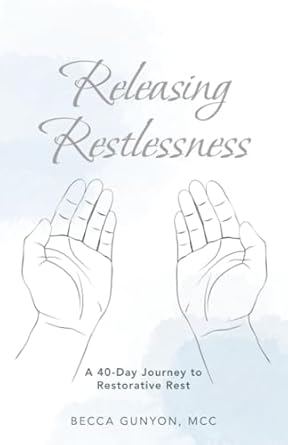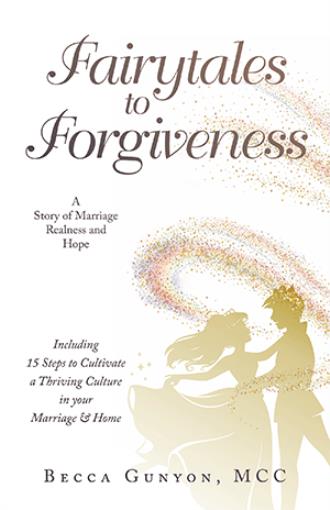15 Elements of Parenting
Parenting Moment by Moment
We Want To Get it Right
A group of students gave me an amazing gift of sitting across from them. Twenty years of counseling adolescents created a close-up view of students’ hearts, thoughts, disappointments, hopes, and how they perceive life. Each student’s perception of life has a direct correlation with their feelings about their life at home and their relationship with each parent. The thought process of adolescents is intriguing and for the last twenty years each time a student mentions their parents, I mentally take notes, for they are teaching me how to communicate with my own kids and teens. Very early on in my counseling career, my biggest win was getting the student and their parents communicating in love.
As Parents - We want to get it right:
Two years after I started counseling, my oldest son was born. Having my own child made me realize at an entirely different level that most- almost all -PARENTS WANT TO GET IT RIGHT!
At that point, I started thinking about the teens coming to my office and how I could learn from them. How could I help them in their relationship with their parents? What could I learn about parenting from hearing their struggles, needs, heartache, the root of their struggles…?
Every student I had the honor of sitting across from taught me something. These are a few treasures I was given by listening to their thoughts, beliefs, and hearts.
15 Lessons Learned from Students
-
Lesson 1: Each child and teen desire to experience closeness with each of their parents in an authentic way.
(Action: Our thoughts about our children and teens are a good place to start as we grow in relationship with them. Do we think about the those things we love about our kids or do we focus on the negative? What we think about our children and teenages will come out in our tone, our words, and our actions?)
-
Lesson 2: Teens want us (their parents) to ask them questions, not to interrogate them, but to ask a question and wait for an answer.
Action: We wonder at some point will they talk to us? If we are developing a relationship with them, they will, most likely not on our timing.
Hearing what their dreams, goals, and desires are will help us partner with them. One of the best questions we can ask our teens is, “How can I partner with you in this ____ (dream, goal, desire)?”
Side note: Some parents give up too quickly. We as parents have so much to say and teach, yet if we listen -we will learn what is on our student’s mind and heart. Listening opens the door for them to listen to us. This takes patience if our teen is an introvert, yet when we least expect it we will get a meaningful conversation.
-
Lesson 3: Every student wants to be pursued by each of their parents. Even when teens slam doors and ignore their parents, they secretly hope their parents knock on the door and keep asking questions. Many teens told me this! Our kids don’t want us to give up on them!
Action: Regardless of what words or actions your child or teen has, they want a relationship with you. They want to be pursued with love and understanding. As parents, this requires we choose a good tone, let go of our own emotions, forgive quickly, and keep pursuing our kid creatively even when they push us away.
-
Lesson 4: Speak into our teens who we want them to be! The power of words is beyond our comprehension. Teens cling to words spoken over them. Our words are either life-giving or discouraging.
Action: If we want to raise leaders, we can say, “You are a leader, you are wise, God made you strong.” Students cling on to one or two words, names, or phrases their parents call them, and they tend to live this out. What word or phrase can you speak over your kids that you want your child/teen to live out?
-
Lesson 5: Boundaries are essential for raising kids that feel secure.
Action: Set a boundary and stick to it. We need to communicate rules and expectations without emotion and if our kids/teens go over the boundary we need appropriate consequences. (Resources: Boundaries with Kids by Dr. John Townsend and Henry Cloud and Boundaries with Teens Dr. John Townsend)
-
Lesson 6: When we as parents say, “No!” explain why.
Action: Our kids start early on asking “why.” How we respond is teaching them how to respond to us, we can calmly tell them the reason behind our “no”. Teens are not against us, they are learning to ask questions and with the right attitude- this is good. How we respond keeps the communication open.
-
Lesson 7: Responding in emotion (anger or frustration) results in shutting down the communication.
Action: If we are angry, take a walk or remove ourself from the conversation. Think before we speak. Reacting in anger leads to more anger. Keep in mind. If we are emotional our teens will get emotional or disengage. Emotional communication distracts from the issue at hand.
-
Lesson 8: Say “YES!” if possible, sometimes when we (as parents) say, ‘No” but there is no apparent reason this causes rebellion. Action: Choosing to say yes, helps create a good relationship with our kids, and as we say yes we must keep this goal in mind. Yes, to driving them when we are tired, yes to having friends over, yes to letting go of routines in the summer, yes to adventure...our yes creates a gratitude in our kids hearts. A “no” for no apparent reason can cause rebellion.
(My mom, Danise Owings, gets the credit for teaching me this one.)
-
Lesson 9: Our kids desire to live in a culture where we respect and honor one another. We (as parents) are given the opportunity to cultivate this culture.
Action: We must choose the tone and words that we want repeated. Our kids and teens listen to how we talk to our spouse, their siblings, our friends and coworkers. By listening to us, they are deciding if they want to talk to us and follow our example.
-
Lesson 10: They want the affirmation! This leads to them repeating the affirmed behavior.
Action: Catch them doing something right and affirm, appreciate, and communicate this.
-
Lesson 11: Celebrate who our child or teen is and the character qualities they possess, not just what they do!
Action: Consistency communicates to our children/teens that they do not need to perform at a certain level to get our approval. I have learned that choosing the same reaction after sports/hobby wins and losses creates confidence in our kids.
For example: We can say after a win or loss, “I loved watching you and I love being here.” This communicates that we enjoy being at their activities regardless of their performance. My mom calls this, “the hug after the game,” after raising Pro-Athletes, she told me the hug afterward is the most important and most memorable.
-
Lesson 12: An apology goes a long way. If we want to get a fresh start, we can apologize. Apologizing and forgiving leads to open communication and helps prevent resentment.
Action: Often our apology leads to more communication. Our kids/teens telling us more about what we did that offended them or how it made them feel, this can be hard for us to hear. I learned from the teens that I counseled, the best response here is to listen, not blame, shame, or justify. A simple, “I love you and I am sorry” is powerful and often leads to them apologizing too.
-
Lesson 13: Every moment counts.
Action: Think, speak, live with purpose. They are watching us as parents and deciding if they want to follow our example. They notice how we respond to others, our routines, how we live out our faith, how we talk to our spouse, how we serve, give, and love others, and even how and when we pray.
-
Lesson 14: Find ways to connect and create community in our students' lives.
Action: Find reasons to intentionally connect with our kids. Example: go through a book with them, do a small group with other parents (resources below), create a year of discipleship, serve with them in a ministry or on a mission trip
(Resources- Champion Tribe for Dad/sons https://www.championtribes.com/home20550563
Cherished Circles for Moms/Daughters http://cherishedcircles.org/)
- Lesson 15: Compassion: Childhood and adolescent stress, sadness, rejection, anger, anxiety is real.
Action: Continually, keep in mind that ages 11-20 are not easy. By remembering this, we can choose to have compassion if they are not acting and responding how we think they should. Before correcting the behavior, we can ask questions to find out what pain is underneath. Our goal can be to find out, “What is going on in their heart and thoughts?”
Our relationship with our children and teens is imperative for their success! All of us parents want to get it right and this happens in the moments that turn into years. (It is never too late to start creating a growing relationship with our children or teens!)
Parenting is overwhelming at times and that is why prayer is such an amazing gift. We can invite God’s power to help us as we develop thriving relationships with each of our kids and teens.
Becca Gunyon, MCC (loving life as a wife, mom of 5, counselor/parent coach, author of The Treasure, Choose Life to the Fullest series, Article from Parenting Moment by Moment- Embrace, Entrust, Enjoy -coming fall 2021
@parentingmomentbymoment @chooselifetothefullest


